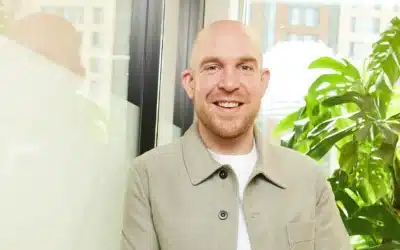A combination of a seaside community Facebook page, the former owner of a struggling Premier League football team, and a journalist and photographer on a day trip to Thorpe Park (the Leeds business estate rather than the Surrey theme park) have come together as the unlikely inspiration for Yorkshire Post business and features chief Chris Burn to give a step-by-step guide to readers as to exactly why much of the newspaper’s online content has now disappeared behind a paywall.
By way of background, the paper recently published a story featuring former Sheffield United owner and chair Kevin McCabe.
McCabe and his family own real estate giant Scarborough Group which, since he founded the firm in 1980, has built business interests from Sheffield to Shanghai, via Saudi and everywhere in between. Only recently, however, did the company decide to build its first project in Scarborough, the company’s coastal Yorkshire namesake less than 100 miles from McCabe’s native Sheffield.
So far, so local journalist picking up on a quirky business story and doing what he’s supposed to.
Understandably, the story attracted some interest from Scarborough residents and it was shared on a local community Facebook page, which is where things start to get interesting:
“After some complaints that the story was behind our paywall, one person took it upon themselves to post screengrabs from the article paragraph by paragraph so the entire thing could be read for free by anyone who came across the page,” Burn explained in a non-paywalled column for the paper.
Burn doesn’t appear to hold any malice for the copy and paster in question: “I imagine the person believed they were doing group members a favour and it was essentially a victimless act,” he continued. “However, I thought it would be worth explaining the process behind doing an interview like the one we conducted with Mr McCabe to show why doing a piece of work like that is anything but free to produce.”
And that’s exactly what he did: “After being offered the opportunity to interview Mr McCabe, hours of research went in beforehand into his career, controversies and what his company has been up to so as to ensure I could ask relevant questions,” Burn went on.
“Travelling to meet him involved a two-hour round trip and the interview also took the best part of two hours to conduct. I was also accompanied on the job by one of our skilled photographers, Jonathan Gawthorpe.
“Writing the piece took the best part of a day, with further hours spent on editing down an initial 3,000 word draft to the 1,400 words that appeared in print and online.
He added: “Additional efforts went into to the editing of Jonathan’s photos, along with the page design and subbing process.
In short, hours and hours of work from multiple people went into the articles that were produced at a cost to The Yorkshire Post.”
Burn concluded: “While obviously our print readers pay for their copies of The Yorkshire Post, we are still in the foothills of online readers getting used to doing so. There are many reasons for that but the bottom line is we see digital subscriptions as a key part of being able to continue to produce quality journalism.”
The Post’s man could have further gone into the details of how some social media platforms are quite happy, to put it in awful digital terms, to ‘attract user engagement’ using ‘content from legacy media,’ but less happy to pay them for it.
Facebook parent Meta was, at least until recently, mitigating some of the financial damage caused to publishers by the social media news free-for-all by funding the Community News Project which, in partnership with the National Council for the Training of Journalists and regional publishers, has provided training and employment to more than 260 regional journalists through a total $17m of funding since its launch in 2018.
Unfortunately, as we reported last September, around 100 jobs could be lost by the end of this year after Meta pulled its funding for UK local newsrooms under that programme.
I make no criticism of Burn for not going into those particular details, however. His piece was already a lengthy one, and the irony of one journalist writing a story about another journalist writing a story about how awful it is that no one wants to pay for journalism any more isn’t lost on me.
Nonetheless the reality remains that, whether it’s through the YP’s paywall approach, the Guardian’s donations model, via some regional publishers’ apparent philosophy of “put a Corrie star in the headline and slap 400 adverts on every page,” the hyperlocal subscription approach of Manchester Mill or through something yet-to-be discovered, the money eventually has to come from somewhere.
Unless of course the polls are correct and we really do all want our news danced at us in six-second bursts by this week’s influencer du jour.












